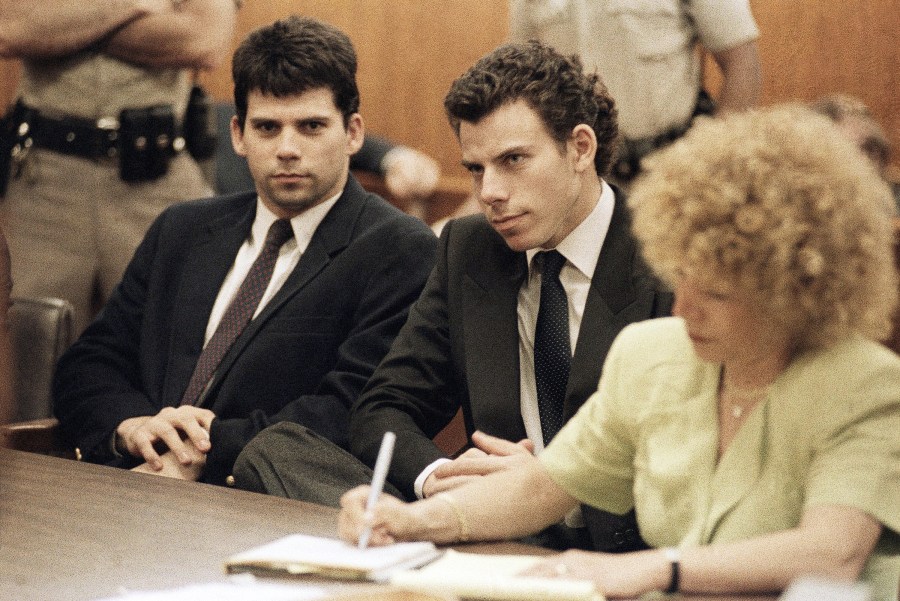Erik Menendez, who along with his brother Lyle, was convicted of murdering their parents, was denied parole Thursday, a day after the 36-year anniversary of their murders.
The nearly 10-hour hearing was held behind closed doors at a California state prison with some media present, and ended with a three-year denial—considered a minimal term under parole standards.
Menendez, 53, retains the right to petition for an earlier hearing, officials said.
The panel, led by Commissioner Robert Barton, cited serious rule violations while incarcerated, including illicit cell phone use and involvement in a tax fraud scheme, as key factors in their decision.
“We certainly did not give this case short shrift,” Barton said. “We probably spent four times more than we do on our usual average here.”

Although Barton acknowledged Menendez’s family support and his work in rehabilitation programs, he questioned whether those efforts were undermined by ongoing misconduct.
“Your institutional misconduct showed a lack of self-awareness,” Barton said, pointing to a pattern of behavior suggesting Menendez believed the rules didn’t apply to him, particularly the cell phone behavior, which the commissioner described as “selfish.”
Barton noted the contrast between Menendez’s leadership in rehabilitative groups and his continued infractions, adding that his chances for parole may have been improved had he not been guilty of misconduct over the last decade.
“Contrary to your supporters’ beliefs, you have not been a model prisoner and frankly, we find that a little disturbing,” Barton said. “That ability to sort of show one face, but be something else, concerns us.”
Deputy Parole Commissioner Rachel Stern echoed the concerns, adding that “sometimes the cover-up is as bad as the crime,” referring to Menendez’s attempts to circumvent rules by having others hold contraband for him.
Erik and Lyle have spent nearly 35 years in prison for killing their parents, Jose and Kitty Menendez, in one of the most high-profile American crime cases of the 20th Century.
On Aug. 20, 1989, the brothers brutally murdered their parents with a shotgun inside their Beverly Hills home.
In the months that followed, the brothers went on lavish shopping sprees, spending hundreds of thousands on cars, watches, sporting events, restaurants, and international and domestic trips. Lyle even famously purchased a New Jersey restaurant.

They were eventually arrested in March 1990 after Erik confessed to his therapist about the killings.
While their guilt has not been in question since their convictions, the brothers have long maintained that they were victims of sexual abuse at the hands of their father, claims that were not allowed to be presented during the trial that ultimately resulted in them being convicted.
Despite acknowledging the trauma Menendez suffered, Barton emphasized he was not in imminent danger at the time of the murders. “You could have legally left,” he said.
During Thursday’s hearing, Barton weighed Menendez’s violent past, and questioned the violent nature of Kitty’s “execution-style” killing, which he described as being “devoid of human compassion,” especially considering she herself was a victim of domestic violence at the hands of their father.
“The killing of your mother especially showed a lack of empathy and reason,” Barton said. “I can’t put myself in your place. I don’t know that I’ve ever had rage to that level, ever.”
Barton acknowledged the support that the Menendez brothers have received in the years since their conviction, and said he had been “gaining insight” to the trauma and “hopelessness” the brothers felt at the time.
“This is a tragic case,” Barton said. “I agree that not only two, but four people, were lost in this family.”
The hearing concluded at 6:42 p.m. A visibly shaken Erik Menendez listened quietly throughout.
Lyle, Erik’s older brother, will have his parole hearing on Friday.
